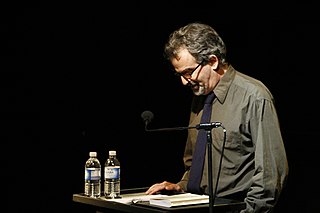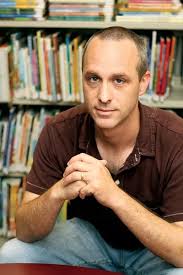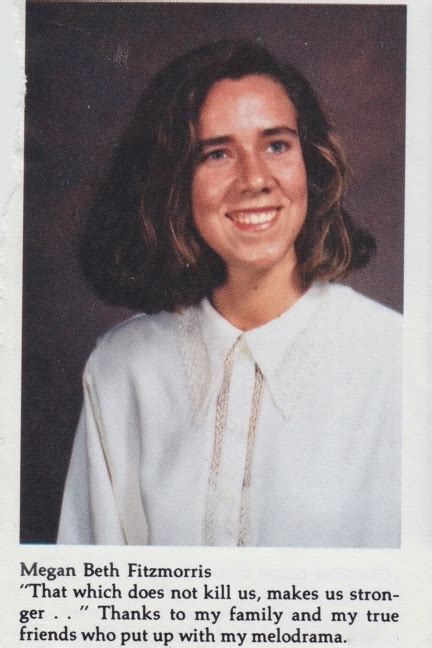A Quote by Richelle Mead
ONCE WHEN I WAS ninth grade i had to write a paper on a poem. One of the lines was"If your eyes weren't open you wouldn't know the difference between dreaming and waking' It hadn't meant meant much to me at the time. After all there'd been a guy in the class that i liked so how could i be expected to pay attention to literary analysis? Now three year later i understand the poem perfectly.
Related Quotes
The poem builds in my mind and sits there, as if in a register, until the poem, or a piece of a longer poem, is finished enough to write down. I can hold several lines in my head for quite some time, but as soon as they are written down, the register clears, as it were, and I have to work with what is on the paper.
I never think of my audience when I write a poem. I try to write out of whatever is haunting me; in order for a poem to feel authentic, I have to feel I'm treading on very dangerous ground, which can mean that the resulting revelations may prove hurtful to other people. The time for thinking about that kind of guilt or any collective sense of responsibility, however, occurs much later in the creative process, after the poem is finished.
I can't understand how people can settle for having just one life. I remember we were in English class and we were talking about that poem by - that one guy. David Frost. 'Two roads diverged in a yellow wood-' You know this poem, right? 'Two roads diverged in a yellow wood, and sorry I could not travel both and be one traveler, long I stood and looked down one as far as I could, to where it bent in the undergrowth-" "I loved that poem. But I remember thinking to myself: Why? How come you can't travel both? That seemed really unfair to me.
If you're angry, you don't have to write a poem dealing with the cause of your anger. But it needs to be an angry poem. So go ahead... write one. I know you're at least a little bit angry with me. And when you're done with your poem, decipher it as if you'd just found it printed in a textbook and know absolutely nothing about its author. The results can be amazing...and scary. But it's always cheaper than a therapist.
Something about this made Reynie uneasy. Had he done so badly? Was this meant to test his courage? He did as he was told, closing his eyes and bracing himself as best he could. "Why are you flinching?" the pencil woman asked. "I don't know. I thought maybe you were going to slap me." "Don't be ridiculous. I could slap you perfectly well with your eyes open. I'm only going to blindfold you.
In seventh grade I had a magical teacher, her name was Mrs. Fried. She wore only pink, she drove a pink Mustang, and she was half out of her head. But very inspiring. And one day she said, "Take out a paper and pen and write something about peace." For some reason I wrote a poem on Noah - I don't know why I chose Noah - and it turned out it was for a contest for the UN. I ended up winning and reading the poem in front of the UN. I remember Mrs. Fried telling me, "When you write your first book, dedicate it to me." That was like, "Whoa."
I don't know what started me, I just wrote poetry from the time was quite small. I guess I liked nursery rhymes and I guess I thought I could do the same thing. I wrote my first poem, my first published poem, when I was eight-and-a-half years old. It came out in The Boston Traveller and from then on, I suppose, I've been a bit of a professional.
Plagiarism has been around far longer than the Internet. In fact, I had a poem published in 'Seventeen' magazine when I was 15 years old. About a year later I was informed that there was a girl who used that same poem to win a statewide poetry competition in Alabama. It took months for people to put together that this had happened.
I shook myself; I was dreaming. As I went to bed the words of the eighth-grade class's teacher, when the class got to Evangeline , kept echoing in my ears: "We're coming to a long poem now, boys and girls. Now don't be babies and start counting the pages." I lay there like a baby, counting the pages over and over, counting the pages.
































